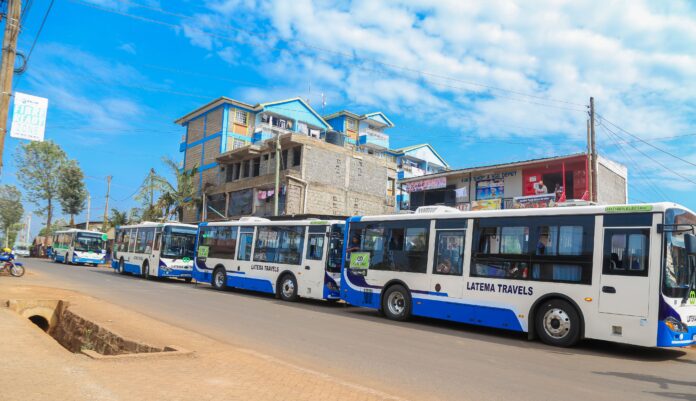sElectric vehicle (EV) owners in Kenya may soon benefit from discounted toll fees under the proposed National Tolling Policy, currently undergoing public participation. The policy, aimed at generating revenue for road maintenance while promoting sustainability, will offer incentives to EVs based on their reduced carbon emissions.
Speaking during a public engagement forum in Kakamega, Engineer Billy Kimko from the Kenya Roads Board emphasized that the policy will ensure toll charges are fair and proportional to road usage. Additionally, high-occupancy private vehicles and those traveling short distances through toll points will also be eligible for discounts.
The tolling system will exclude emergency and security vehicles such as ambulances, police cars, military equipment, and fire trucks from charges. The government plans to introduce the tolls on newly constructed roads, improved highways, and other high-quality road networks. A vehicle identification and registration system, integrated with automatic number plate recognition, will be developed to facilitate toll payments.
The introduction of tolling comes as Kenya faces a significant funding shortfall for road maintenance. Engineer Kimko revealed that in the 2024/2025 financial year, the Roads Maintenance Fuel Levy (RMFL) raised Sh100 billion against the required Sh253 billion to sustain the existing road network. With the rise of electric mobility, RMFL collections are expected to decline further, necessitating alternative funding mechanisms such as tolling and Public-Private Partnerships (PPP), similar to the Nairobi Expressway model.
“Kenya’s road network spans 239,122 kilometers, with 164,966 kilometers under the national government and 74,155 kilometers under county administrations. To maintain and upgrade this vast network, additional revenue sources must be explored,” Kimko stated.
While the proposal aims to enhance road infrastructure, some stakeholders have raised concerns about the government’s focus on major roads at the expense of rural areas. Residents of Kakamega County questioned how the policy would address long-neglected roads like the Lurambi-Navakholo-Musikoma route, which has yet to be rehabilitated despite budget allocations.
“The government should ensure a fair distribution of road maintenance funds to prevent certain areas from being overlooked,” said Wanyimbo Sangula, a participant at the forum.
Under the policy, initial toll charges will be determined by the Transport Cabinet Secretary and the National Treasury, with quarterly adjustments based on inflation, exchange rates, tax changes, and economic trends. Road users who fail to pay toll fees will face penalties, including fines of up to Sh50,000 or a six-month jail term.
The technical working group overseeing the National Tolling Policy is set to present the proposal to the Parliamentary Committee on Roads and Infrastructure on March 31. Following validation and Cabinet approval, the tolling system could soon become a reality, with electric vehicles emerging as key beneficiaries of the new incentives.







